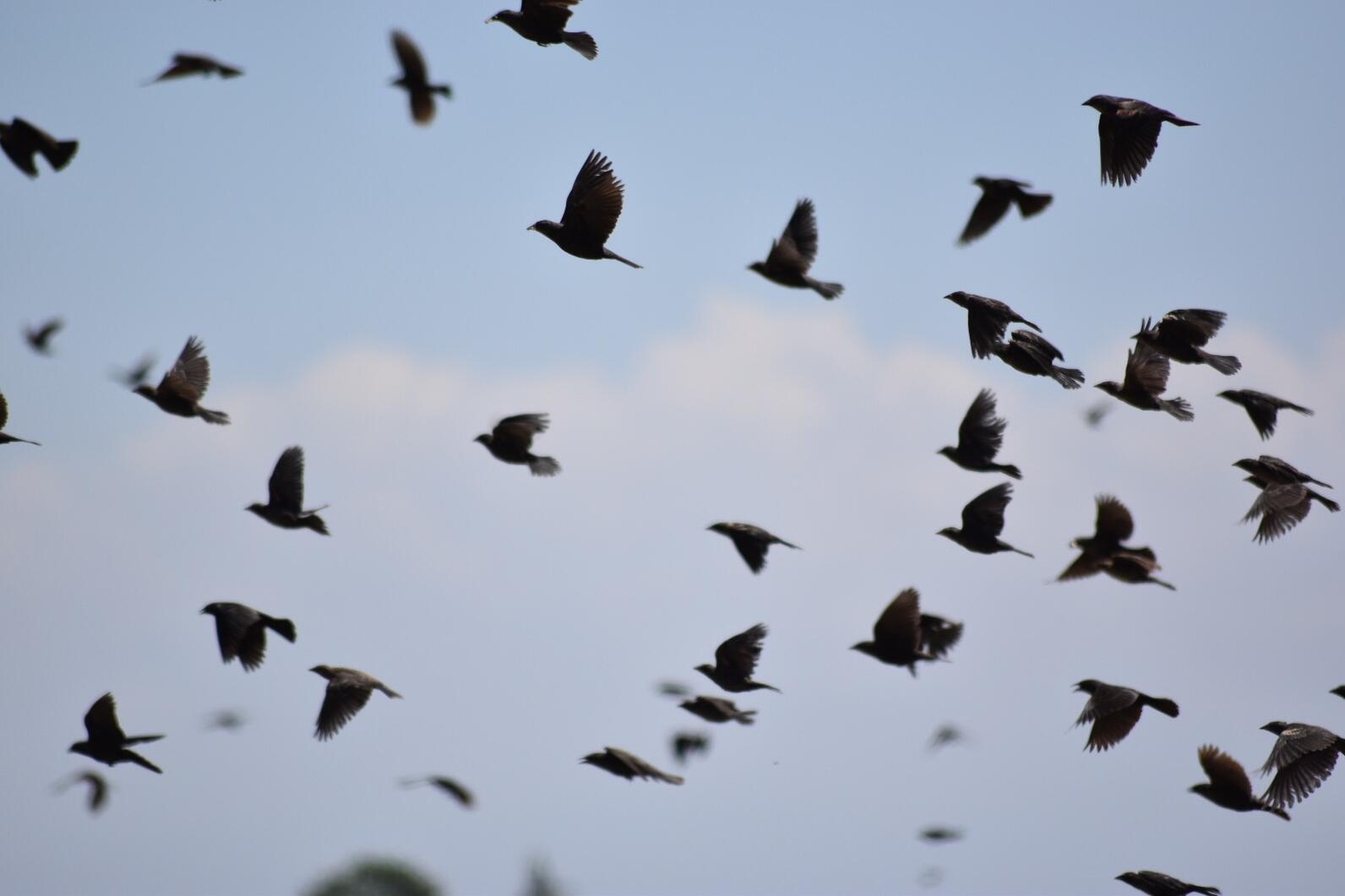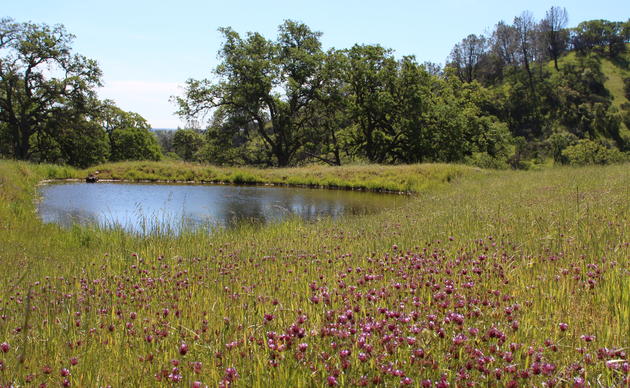
Despite small breeding colonies in neighboring states, Tricolored Blackbirds are California's blackbird. Over 95 percent of the global population resides in the state. While anyone ever seeing a teeming flock of “trikes” feeding or in flight might have a hard time believing, the bird was listed as threatened under the California Endangered Species Act in 2019. However, Audubon research indicates that populations may be beginning to recover.
As recently as 1930, millions of Tricolored Blackbirds darkened the skies near Central Valley wetlands. As marshes were drained, the birds moved onto agricultural land, especially wheat fields. Farmers typically harvest their crop before nestlings have fledged, even wiping out the young of entire colonies in a single day as harvesting machinery moves across an occupied field. In surveys conducted from 2005 through 2009, less than half of colonies escaped destruction of their nesting areas.
For the past eight years, Audubon has worked together with farmers, the California Department of Fish and Wildlife, Natural Resources Conservation Service and other partner organizations to locate colonies and encourage growers, through financial incentives, to postpone harvests until nestlings had fledged. In a study recently published in the journal Western Field Ornithologists, we found that this public-private partnership has been highly successful: from 2015 to 2022, nearly 100 percent of nesting attempts on agricultural land were conserved, and the number of birds nesting in grain fields increased by as much as 100,000. The reported increase in the population was confirmed during the most recent stateside survey in 2022. This survey is a coordinated voluntary effort, involving many chapter members across the state, to survey suitable habitat areas for birds resulting in a snapshot in time that tells us approximately how many birds are in the population. Protection of the most at-risk nesting sites is contributing to a bump in Tricolored Blackbird populations statewide, but innovative conservation efforts must be continued if the species is to recover fully.
Support Bobcat Ranch
Your gift supports our work to develop & promote bird-friendly cattle ranching practices in CA and to protect and restore native grassland habitat for birds.




